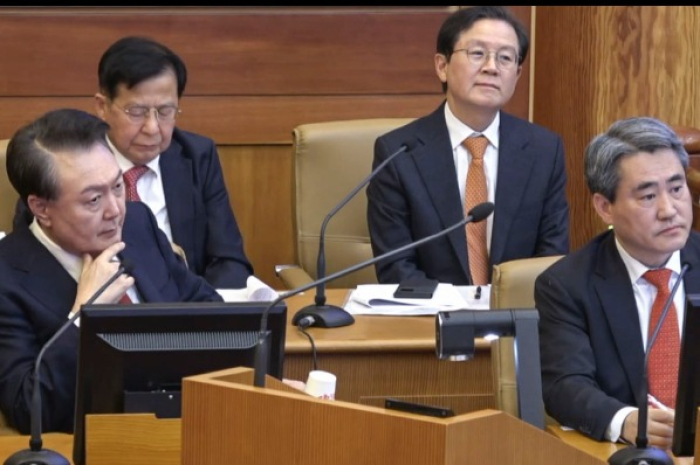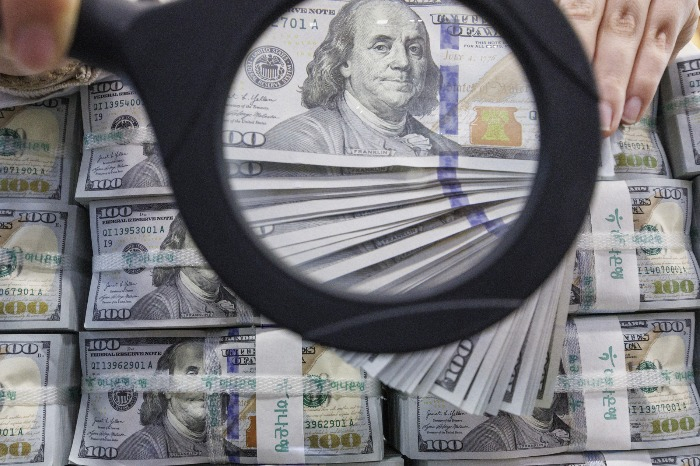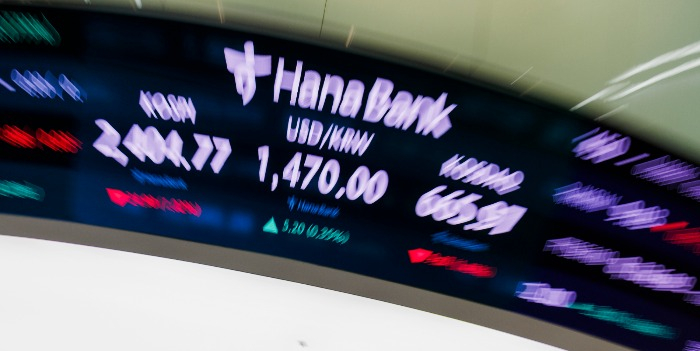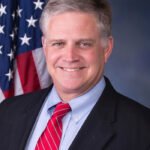
South Korea’s financial market has stabilized with a sharp fall in the country’s default risk and the recovery of the Korean currency value against the US dollar, buttressing the central bank’s rate cut next week.
The credit default swap (CDS) premium for South Korean foreign exchange stabilization bonds with a five-year maturity stood at 31.25 basis points (bps) on Thursday, 22.6% lower than the premium of 40.395 bps on Jan. 10, according to data from the Korea Center for International Finance (KCIF).
The premium was even smaller than the pre-martial law level of 33.95 bps on Dec. 2, suggesting less default risk of Asia’s No. 4 economy.
CDS is a derivative product serving as a form of insurance against the default of an underlying debt instrument, and the CDS premium is equal to the probability of default.
The higher the CDS premium, the higher the default risk, or vice versa.
Korea’s CDS premium shot up after President Yoon Suk Yeol’s short-lived martial law declaration in December, which has caused political upheavals in the country.
An unnamed official from Korea’s Ministry of Economy and Finance also noted “a gradual change in the stance of foreign investors who have turned hesitant to invest in Korean markets after the martial law.”
Reflecting a recovery in investor sentiment about Korea, the US dollar/Korean won exchange rate has recently stabilized.
The greenback was traded between 1,437 and 1,438 won on Friday, versus about 1,480 immediately after the martial law decree. The recent appreciation of the Korean currency is also due to a fall in the US dollar against major currencies.

BOK RATE CUT
With the lower CDS premium and the higher Korean currency value, the Bank of Korea has more room to cut its policy rate on Tuesday next week, forecast analysts.
HSBC said in a recent report that the BOK is highly likely to lower the rate given the growing risk on the global trade front.
The highly liquid Korean government’s three-year bond yield slid to 2.611% on Friday from this year’s highest of 2.675%.
The Korean central bank unexpectedly kept its policy rate at 3.00% during its first rate-decision meeting for this year in January.
Since it lowered the Korean economy’s growth outlook for this year to 1.6-1.7% from the previous forecast of 1.9%, the bank has been widely expected to cut rates in February.
GOVERNMENT IN ACTION TO CALM INTERNATIONAL INVESTORS
The Korean government has been actively promoting the soundness of the Korean economy despite the ongoing political turmoil.
Choi Jong-ku, the ambassador-at-large for international finance cooperation, met foreign investors and officials from the top three global credit rating agencies in Hong Kong and Singapore last week to explain the Korean economic and financial market condition.

During the meetings, he emphasized the quick recovery of the Korean financial market since the country’s brief martial law.
“A fall in CDS premium demonstrates the international community’s unscathed confidence about the Korean economy,” said Choi.
He added that Korea’s stable foreign reserves and record-high net foreign investment by Koreans underscore the solid fundamentals of the Korean economy.
“The country’s political uncertainty is set to be eased gradually in an orderly manner by the Constitution and laws,” Choi said regarding the martial law-triggered political chaos in Korea.
Choi, a veteran technocrat and a former chairman of the Financial Services Commission (FSC), was appointed as the country’s ambassador-at-large for international finance cooperation for a one-year term in late December.
Citibank also said in a recent report that it anticipated a stable and effective policy collaboration of the nation’s largest institutional investor National Pension Service’s FX hedging, the Bank of Korea’s rate cuts and the government’s extra budget despite the political uncertainty.
By Jin-gyu Kang and Sang-Yong Park
josep@hankyung.com
Sookyung Seo edited this article.













